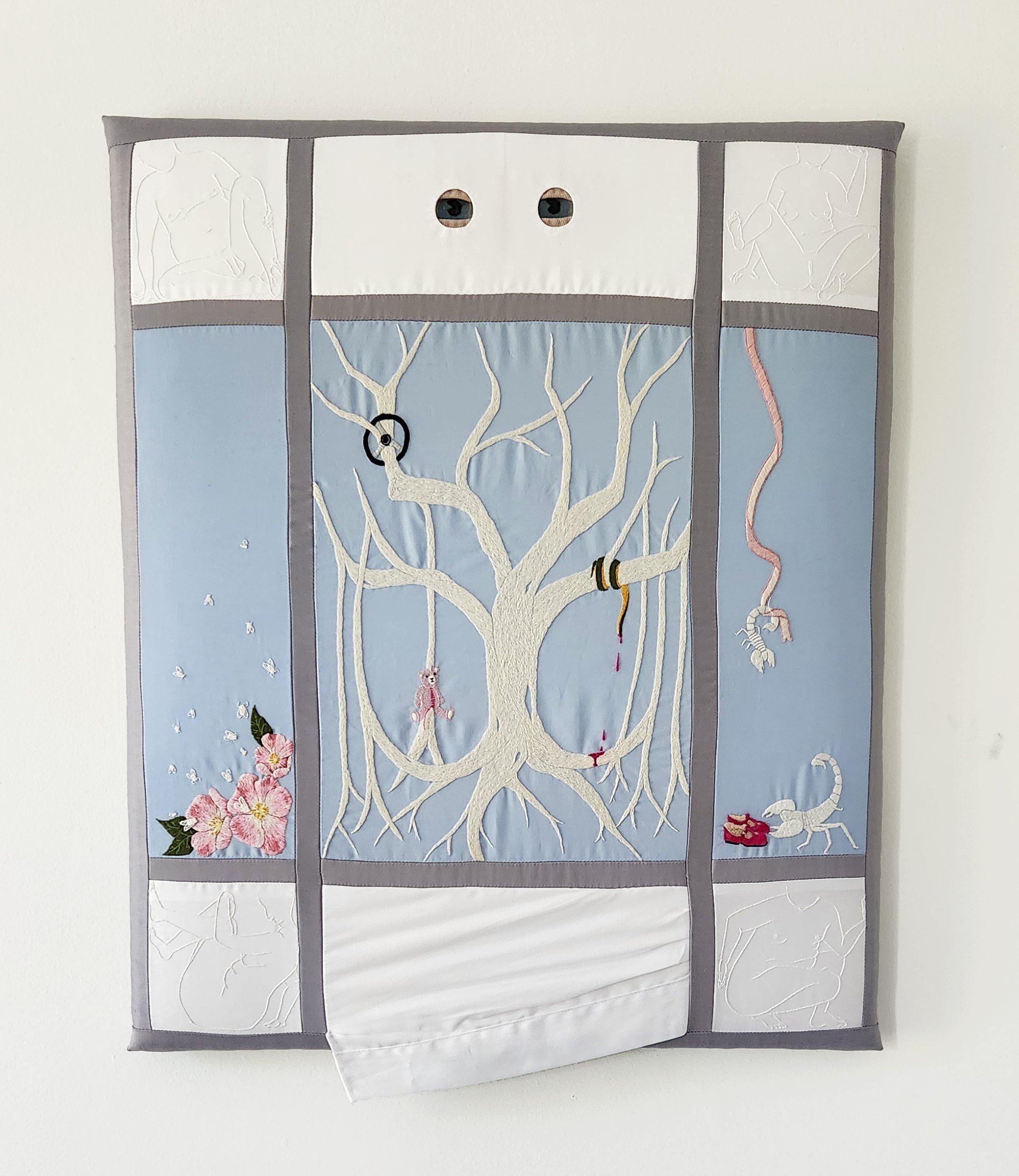DVAA Member since 2022
Heather Marie Scholl
Artist Website:
About:
Heather Marie Scholl (b.1985, Portland, OR) is a Philadelphia-based artist addressing issues of race, gender, and trauma. She holds a BA in Race, Gender, and Sexuality and an MFA in Fashion and Knitwear Design. Scholl has received several awards including a Fellowship at the Leslie-Lohman Museum, a Linda Lee Alter Fellowship at DaVinci Art Alliance, residency at Stove Works, Yvonne M. Kelly Mixed Media Art Prize and Brooklyn Arts Council, CERF+, and the Illuminate the Arts grants. In 2015, Scholl began work on her series “Whitework,” an exploration into white women’s roles in white supremacy. This led her to co-founding and directing Confront White Womanhood, an anti-racism education initiative for white women (2016-2020) where she held workshops for the Women’s March, Columbia University, National Society for Genetic Counselors and others. Since 2020 she has been addressing issues of LGBTQ+ Domestic Violence through the art series “Resurrection of a Victim” and related public programing. In 2024 she was the lead instructor for Grant BLVD’s inaugural class, “Fashioning the Future Forward,” a sewing job training program for formerly incarcerated women. Scholl’s art work has been exhibited at Pen + Brush, Woodmere Art Museum, Fuller Craft Museum, Rokeby Museum, and DaVinci Art Alliance, among others. Her work has been written about in Slate, Cosmopolitan, i-D magazine, and BUST.
Artist Statement:
Using the mediums of embroidery, sculpture, and writing, my practice confronts personal and national legacies of violence. I merge visual and written work in intimate pieces that evoke a disquieting vulnerability and unsettle ingrained ideas of race, trauma, and queerness. These works are informed by research on whiteness, the intersections of racial violence and sexual and domestic violence, personal trauma histories, and my inner emotional landscape. They create new mythologies built on the storytelling traditions of religious iconography, fairy tales, and folk art, and the material traditions of craft.
Much of my work is elaborately hand embroidered in a time-consuming process that parallels the slow process of individual and societal transformation. Each piece takes anywhere from a few months to a few years to complete, as I methodically develop symbolism and imagery that honors the weight of the topics carried on each thread. Through a comfortingly familiar, yet eerie use of craft and subject matter the works investigate how histories of violence — and healing — are woven into our bodies, homes, rituals, and daily lives, and how they bleed into the stories we tell about ourselves and each other.
Embroidery and craft traditions connect people from all walks of life to memories of elders and childhood. This intergenerational connection fosters a sense of safety necessary in confronting our lineages of violence. In this approach, we are held, with the tenderness of craft, in an experience of breaking through the shame and silence that often stops conversations on race, whiteness, and sexual and domestic violence.




